
Building the World of Humanities Core
By Serenity Thu Ritchey
Entering college, my classes were held in a completely virtual landscape. The year was 2020. In response to news of the COVID-19 pandemic, universities made the switch to remote learning to deliver education through the comfort of one’s screen. Except “comfort” wasn’t exactly an apt descriptor for my and many others’ experience of virtual learning. Being a remote learner was, at times, isolating and lonely. I hadn’t realized how difficult it was for me to imagine education without the people around me in mind–instructors, professors, classmates. They were still there for me, just at a remove. With this distance, I didn’t anticipate Humanities Core being such a vibrant experience in my first year.
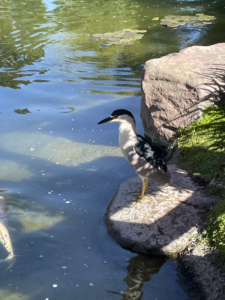
Now that I’m in my third-year at UCI, I’ve been thinking a lot about why it was that Humanities Core struck me as alive in a time not known for its intimacy. I attribute this to two things. First, I thought that the material spoke with great immediacy to our present moment and primed me for the thinking I try to continue into my major. Second, the course came with an accompanying seminar component where we met with our peers and seminar instructor to discuss material taught to us in lecture.
I wanted to investigate if what felt to me was the cornerstone of my education at UCI was the same for others in my cohort as well as those who came before me. I enlisted the help of some lovely alumni and former students who shared their testimonies with me through interviews. As I spoke with them about their experiences in Humanities Core, I found that many common insights emerged in our discussions. Here, I hope to share some of those reflections to record and archive what the world of Core has looked like throughout time.
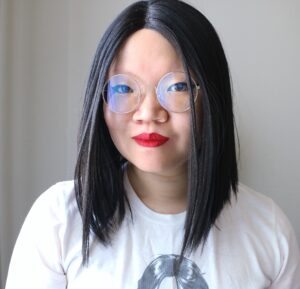
Humanities Core was unique in the sense that it was a year-long course. Taking other GE requirements can feel disjointed in comparison. This and seeing familiar faces was a nice bridge from your high school experience.
– Traci G. Lee, B.A. in Literary Journalism and Global Cultures, Class of 2011
Come on in, freshmen!
A kindness extended to Humanities Core students is how it allows for an easier transition for first-years moving out of high school. Because of its year-long structure, students can find comfort in their growing familiarity with the kind of thinking and doing expected of them, leaving more space for students to engage with the content. This also has to do with the support system provided to students by the faculty:
The quarter system can often feel like this renewed cycle that takes some adjusting to. Having the same faculty that we could reach out to and develop relationships with was a source of stability I felt I really needed and appreciated as a freshman.
— Dorothy Truong, B.A. in Urban Studies and minor in Global Sustainability, Class of 2024, UROP Research Paper Award-Winner 2021
What I enjoyed most about Humanities Core was having that very close engagement with the faculty, seminar leaders, and our peers in discussion. I think especially as first-years, it can be daunting to try to find your footing in college. Humanities Core provided me a space to discover more of my interests and find support.
— Marvin Paguio, B.S. in Human Biology and Minor in Medical Humanities, Class of 2020, First-year Medical Student at OUWB School of Medicine
In my Humanities Core sections, we built a really robust community in the classroom. I loved talking and joking about the course material and thinking about them in various contexts. I liked commiserating with my cohort about the things in them.
— Becky King, B.A. in English, Class of 2013, M.A. and C. Phil at UCLA, Lecturer at UC Irvine
Friends of Core
Above all, many of us cherished the time spent with our peers in seminars. As previously mentioned, the structure of Humanities Core consisted of two parts: a lecture and accompanying seminar class. These smaller groups made for a more approachable and familiar setting to talk through text and other material. As opposed to the usual crowded lecture hall, having a safe and open space where we students could come together and share our input was something we really treasured.
Going to seminar was one of my favorite parts of Humanities Core because I had a very kind and personable section leader. Students were definitely hesitant to share their thoughts a lot of the time and it was really nice seeing how our openness to discussion progressed over time. The way my instructor talked was really inviting and they’d often remind us that it’s not about being right or wrong, but about the valuable lessons we could learn by talking through things with one another. It was nice being reassured that correctness wasn’t something to be anxious about, and I think this dynamic was such a special learning experience.
— Roseanne De Guzman, B.S. in Human Biology, Class of 2024, UROP Research Paper Award-Winner 2021
There’s something really valuable about being able to analyze a painting, a movie, a primary source, theory. To look at anything in life and for it to be meaningful and say something larger about humanity. Art is a microcosm of the human experience, and it’s this interdisciplinary, intermedia study that brings us closer to understanding who we are.
— Christopher Nagelvoort, B.A. in English and minors in Creative Writing and Computer Science, Class of 2023, UROP Research Paper Award-Winner 2020

Expanded worldview
In terms of the course content, many including myself felt that taking Humanities Core facilitated a broadening of our horizons. This is partially due to the interdisciplinary focus of the series and exposure to different modes of analysis through which we can make sense of the world around us. Moreover, Humanities Core operates through thematic cycles which they renew every three years and organizes its syllabus under that shared theme. This kept discussions current, but more importantly gave us the ability to view our world more intentionally.
I think the biggest and most immediate impact of Humanities Core was the way in which it expanded my worldview. I think, prior to this, despite doing well in history class and being very interested in literature, a lot of the topics seemed kind of abstract. Either they were in the past or folded into fiction or both. And I think what Humanities Core really did is it made me more conscious of the world around me and the present moment. It made me think about politics, it made me think about social class, it made me think about people’s lives in the world and how literature could speak to people’s lives.
— Becky King, B.A. in English, Class of 2013, M.A. and C. Phil at UCLA, Lecturer at UC Irvine
I’ve always felt that studying the humanities was very transformative for people like myself who come from families who aren’t from education, which are a lot of Californians of all different nationalities and countries. I don’t think people recognize until you’re a first-generation student how small of a world you can live in […]. One of the great things about a college education and Humanities Core is recognizing that you’re a part of a history. Not only that, but you’re a part of a world, you’re a part of a civilization […]. And I think more than anything else, it makes you want to learn.
— Barry Lam, B.A. in English and Philosophy, Class of 2001, Ph.D. in Philosophy at Princeton, Professor at UC Riverside and Producer of Hi-Phi Nation podcast
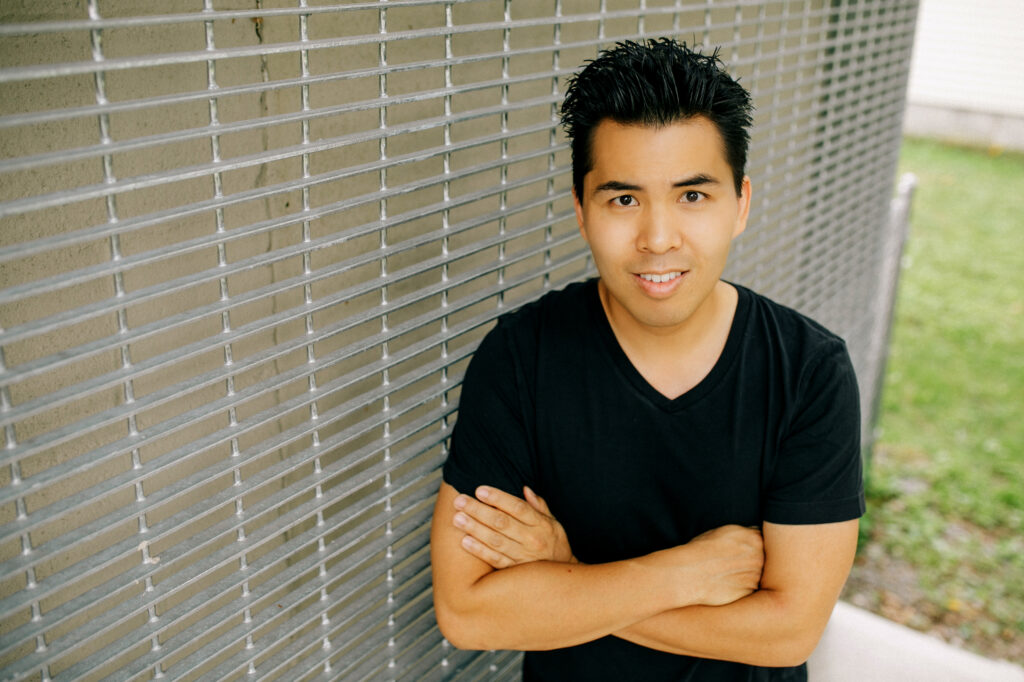
This was especially resonant for those whose major of study wasn’t housed in the School of Humanities. While we’re expected to specialize in one academic interest, an appreciation of both the sciences and the humanities gets us to think more holistically.
As someone with a background in Computer Science, I’ve found that studying the humanities has helped me balance my perspective of things. Through Humanities Core and other courses, I was able to appreciate the broadness and various sorts of ways our world works […]. Being able to see things in the larger context of culture and the humanities has given me insight that I don’t think I would arrive at by studying either STEM or the humanities in isolation. For me, the two work in tandem. To some extent, I feel that it’s necessary we study both in order to grow as people.
— Andrew Lee, B.S. in Computer Science and Minor in History and Philosophy of Science, Class of 2024, UROP Research Paper Award-Winner 2021
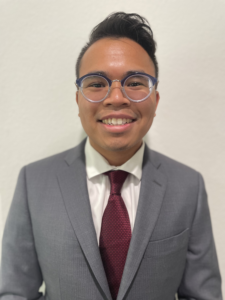
Wherever you go, you’re going to be interacting with people and your work will have an impact on others. Humanities Core enables you to be more mindful of that.
— Marvin Paguio, B.S. in Human Biology and Minor in Medical Humanities, Class of 2020, First-year Medical Student at OUWB School of Medicine.
Ventures forward
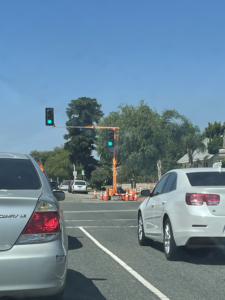
Another way Humanities Core students widen their worldview is through their introduction to the world of research. In the spring quarter, students produce a capstone research project that allows them to further investigate concepts that interest them from lecture or ones that personally excite them. Some of these inquiries extend beyond the span of Core, taking their study well into their undergraduate career, as one student shared:
Conducting research in Humanities Core made me think a lot more heavily when it comes to my own cultural background as Filipina. The central focus of my research project was the racism and colonization that has defined our history. This comes up often in my everyday life. Whenever I talk politics with someone, whether that be about the Philippines or America, a lot of what I bring to the conversation is the histories that I learned while researching for my project. I’ve taken this into my current research with Public Health, which continues to be about the Philippines and how colonization affected so many different dimensions of life. How our history is still very much apparent in our current beliefs, whether that be religious, cultural, or political, or social. It’s an ongoing challenge of trying to figure out where we go from here.
— Roseanne De Guzman, B.S. in Human Biology, Class of 2024, UROP Research Paper Award-Winner 2021
Some observed how Humanities Core has informed their professional careers as well, both in the kind of work they sought out and how they approach said work:
I am able to apply what I learned and the writing skills I developed as a Peer Tutor at the Writing Center. I continue to engage with Core concepts by working with students on their essays and learning through their interpretations of new texts. I’m also teaching a class based on my Humanities Core research project as part of the UTeach program. Humanities Core changed the trajectory of my studies, as I incorporate what I learned into my other involvements and fields of study at UCI.
— Beatriz Galeana, B.A. in Psychological Sciences, Class of 2024, UROP Research Paper Award-Winner 2021, Humanities Core Peer Tutor at the UCI Center for Excellence in Writing and Communication
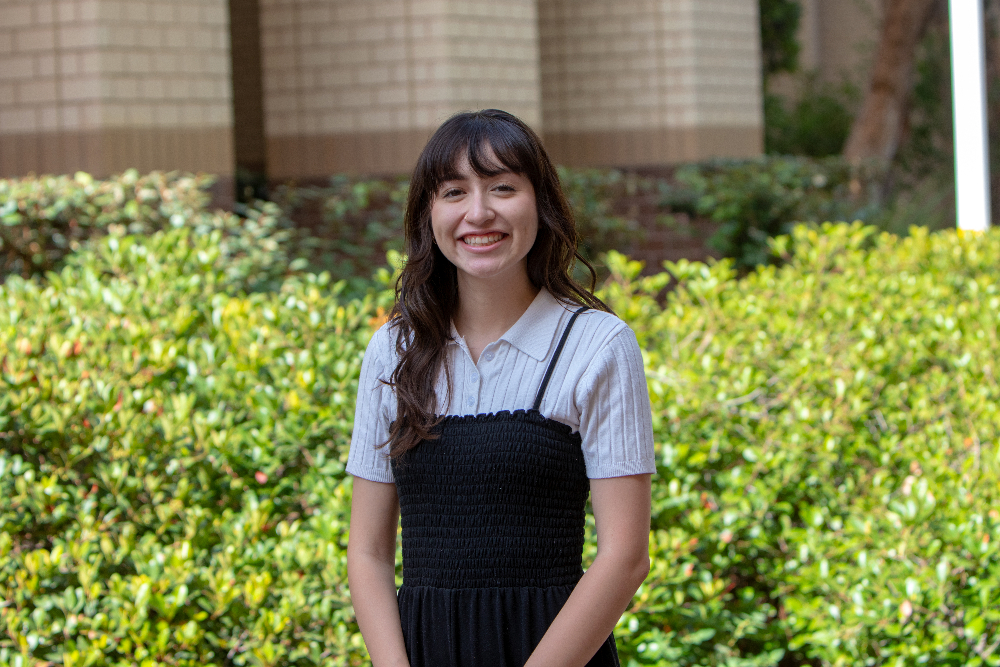
One of the positives to innovations in social media, the Internet, and the digital space is that it has opened up storytelling for more people. In my past work at NBC, I was involved in overseeing the network’s coverage of Asian-American Pacific Islander storytelling, specifically around growing diverse audiences for the network, but also in trying to put the power of storytelling back into the hands of people who traditionally didn’t get to tell stories […]. Thanks to the digital age, people are now able to create their own content and tell their own stories. Marginalized and underrepresented voices are given greater access to share about their communities. I find this to be really empowering, and that’s one of the things that I find the most interesting about fields like literary journalism or the humanities. You get the time and the space to tell stories that often don’t get told in traditional media spaces.
— Traci G. Lee, B.A. in Literary Journalism and Global Cultures, Class of 2011
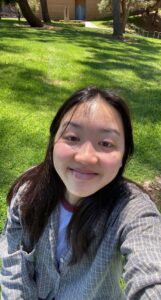
We consume so much— movies, books, art— but don’t really think about the intention behind the kinds of things we’re exposed to in everyday life.
— Dorothy Truong, B.A. in Urban Studies and minor in Global Sustainability, Class of 2024, UROP Research Paper Award-Winner 2021
Seeing the world through a more critical lens
With the digital age, it can be difficult to want to take everything in and digest it in a meaningful way. In our endeavor to be more conscious of the world and its workings, many of us credited Humanities Core for giving us the critical thinking skills necessary to more mindfully engage with our surroundings:
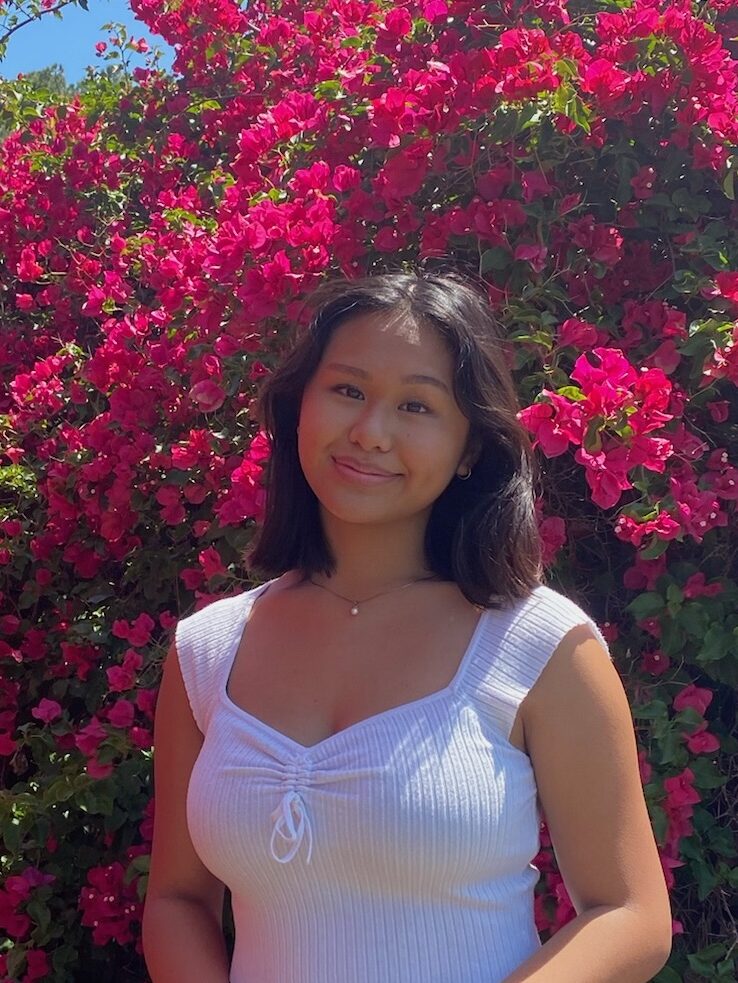
Learning about different topics within Humanities Core reminded me to be more critical of the things I consume. We’re always engaging with all these different bodies of work and it’s so important to be conscious of what you’re taking in and why it resonates with you.
— Lauren Sayat, B.S. in Biological Sciences, Class of 2024, UROP Research Paper Award-Winner 2021, Undergraduate Researcher with Bio 199 and Historian of PUSO
Humanities Core changed the way I consume literature, art, and film. The course helped me develop an appreciation for the way media influences and reflects the human experience […]. The humanities continue to inform my work in Psychology and Health, because all three are connected to how people think, express themselves, and are products of their experiences.
— Beatriz Galeana, B.A. in Psychological Sciences, Class of 2024, UROP Research Paper Award-Winner 2021, Humanities Core Peer Tutor at UCI’s Writing Center
How the humanities gets us to imagine better
Part of the pleasure of making critical observations is that it allows us to rethink the world we live in. When we consider what to make of the world we’ve inherited, we look to the humanities to inspire us.
Education allows us to channel hope and reimagine better possibilities. Humanities Core and courses like it makes you feel empowered and be more mindful of how you can create a better world. You become more conscious of how you view and interact with the world around you.
— Marvin Paguio, B.S. in Human Biology and Minor in Medical Humanities, Class of 2020, First-year Medical Student at OUWB School of Medicine.
I think that this most efficiently sums up the mission of Humanities Core. Throughout its history, students have left feeling more confident about their capacity to effect meaningful change. As my interviewees have so beautifully conveyed, it is more and more important to attend to the world around us, to understand its past, and what it can offer us if we continue to be creative and curious. And most importantly, this is only made possible through earnest discussion and collaboration with others. The sooner we’re engaged in this kind of thought, the closer we get to conceiving a kinder, more just world.
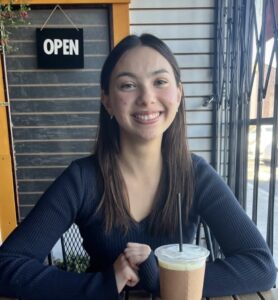
Hence why I’m so thankful to have taken such a course in my first year at UCI. I owe so much of my growth and gratitude to Humanities Core, and as I suspected, so do so many other students across time and space. I hope that through others’ and my own accounts that I was able to capture the experience of taking Humanities Core with some justice.
My best and sincerest thanks,
Serenity
